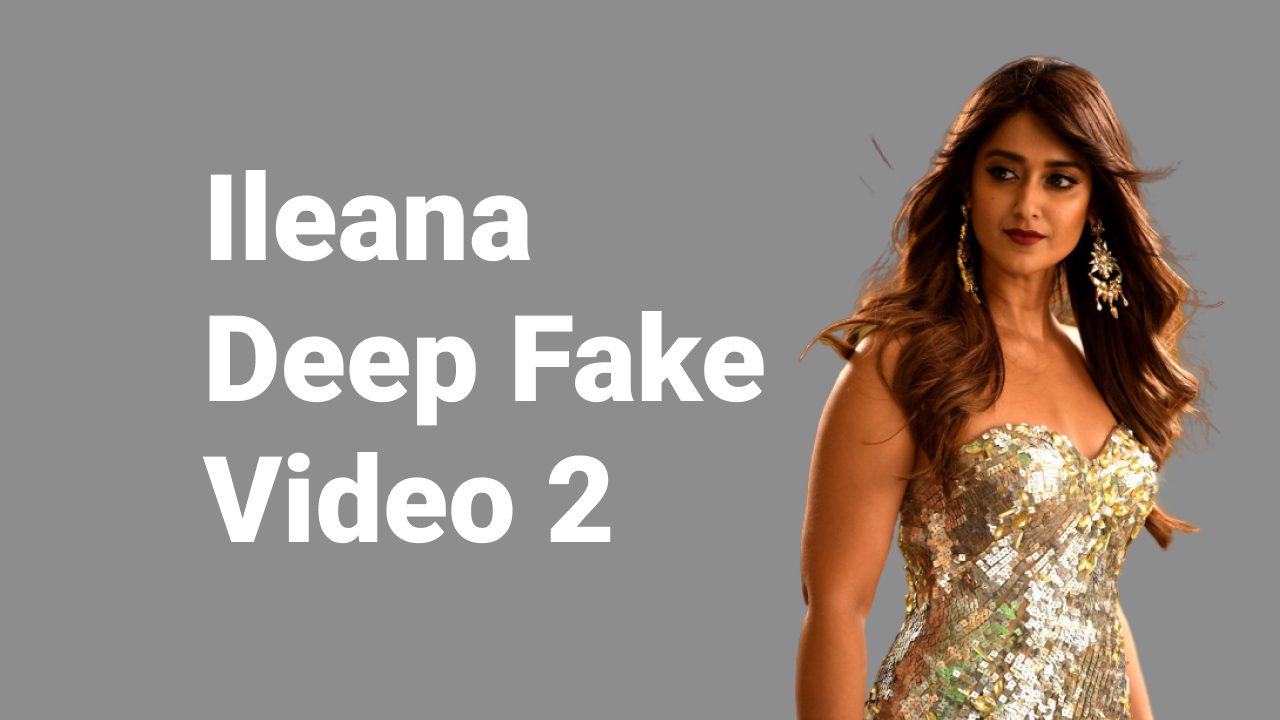Deepfake Videos: Exploring Links & The Dark Side
In an age dominated by digital manipulation and the relentless pursuit of virality, are we truly prepared for the ethical quagmire of deepfakes? The advent of deepfake technology, capable of creating incredibly realistic, albeit fabricated, videos and images, poses a significant threat to individuals, society, and the very fabric of truth.
The proliferation of deepfake content, particularly those of a salacious nature, presents a complex web of challenges. The accessibility of sophisticated editing tools, coupled with the anonymity afforded by the internet, has fueled a surge in the creation and distribution of these deceptive videos. Celebrities, public figures, and even ordinary individuals have become unwitting targets, their images and voices exploited for malicious purposes. The consequences range from reputational damage and emotional distress to financial ruin and legal battles.
The ethical implications are vast. Deepfakes erode trust in media, institutions, and the people within them. They can be used to spread misinformation, incite hatred, and manipulate public opinion. The potential for political interference, the spread of disinformation campaigns, and the exploitation of vulnerable individuals are all pressing concerns. The need for robust regulations, technological solutions, and a more informed public discourse has never been greater.
The term "deepfake" itself, a portmanteau of "deep learning" and "fake," encapsulates the technology's core. Deep learning algorithms, a subset of artificial intelligence, are trained on vast datasets of images and videos. They then learn to identify patterns, replicate features, and generate convincing synthetic content. The result is the ability to seamlessly swap faces, manipulate voices, and create entirely new scenarios with stunning realism.
Deepfakes are not merely the domain of sophisticated tech experts; their creation is increasingly accessible. Numerous software applications and online tools, some free and user-friendly, enable individuals with minimal technical expertise to generate deepfakes. This democratization of deceptive technology exacerbates the risks, making it easier than ever to create and disseminate harmful content.
Consider the disturbing reality of deepfake pornography. This category often targets women, celebrities, and even children, creating explicit videos without their consent. The impact on victims can be devastating, leaving them traumatized, vulnerable to harassment, and struggling to regain control of their digital identity. The spread of such content online poses a serious threat to privacy and personal safety.
- Guendalina Dorelli The Daughter Of Stars What To Know
- Onlyfans Indianamylf Exclusive Content Latest Updates
One cannot discuss deepfakes without acknowledging the significant role of social media platforms and online content aggregators in their dissemination. These platforms, designed to facilitate the sharing of information, can inadvertently become vehicles for the rapid spread of deepfakes. The speed at which such content can go viral, reaching millions of viewers in a matter of hours, underscores the need for proactive measures to combat its spread.
The issue isn't limited to celebrities. Deepfakes can target anyone. The potential for identity theft, financial fraud, and blackmail is significant. Imagine a scenario where a deepfake of an executive is used to manipulate stock prices or a video is used to extort money from an individual. The implications for individuals and businesses are profound.
The rise of deepfakes has also sparked debate on free speech and censorship. Finding the right balance between protecting individuals from harm and upholding the principles of free expression is complex. Regulating deepfakes requires careful consideration of legal frameworks, technological advancements, and ethical considerations.
The development of effective countermeasures is crucial. This includes the development of AI-powered detection tools capable of identifying deepfakes with high accuracy, the implementation of stricter regulations on the creation and distribution of such content, and increased public awareness campaigns aimed at educating the public about the dangers of deepfakes. There is also a growing emphasis on creating a responsible culture of digital citizenship.
The landscape of deepfakes is constantly evolving. Advances in technology mean that synthetic videos become more realistic, and the methods for creating them more accessible. Consequently, the cat-and-mouse game between creators of deepfakes and those who seek to detect and mitigate their effects will continue. It is critical that this continues to be addressed.
Consider the role of deep linking, a foundational concept in mobile app marketing. Deep links, those "connectors" that direct users to specific content within apps, are not directly related to deepfakes. However, understanding the dynamics of online content distribution is important for understanding how deepfakes spread. Deep links play a crucial role in how people navigate and discover content online. They are fundamental to how mobile apps and websites connect people to what they are looking for. These links often contain an 'authority' and 'hostname' component, specifying the exact location.
One must also consider the role of platforms designed to offer curated content, such as those that may promote certain video types. Websites like "Deephot.link," are online platforms that claim to offer "exclusive content." These platforms raise many questions. The ranking and traffic data of these types of sites (e.g., Deephot.link is ranked #58,488 in the world, and sees an estimated 47.6k daily visitors) underscore the consumer demand for such material.
The challenge lies in curbing the exploitation of technology for malicious purposes, while simultaneously preserving fundamental principles of freedom of expression. Websites and platforms that allow content of this nature can cause huge legal and ethical concerns. Those websites are likely violating privacy laws and promoting the creation of content without consent.
In conclusion, the rise of deepfakes poses a grave threat to individuals, society, and the credibility of information. By fostering a culture of digital literacy, promoting responsible content creation and distribution, and enacting robust regulations, we can begin to mitigate the risks associated with this transformative technology. The fight against deepfakes is not a one-time battle; it is an ongoing challenge that requires vigilance, collaboration, and a firm commitment to truth and accountability.
Websites and platforms that allow content of this nature can cause huge legal and ethical concerns. Those websites are likely violating privacy laws and promoting the creation of content without consent.
Web site owners who do not want search engines to deep link, or want them only to index specific pages can request so using the robots exclusion standard (robots.txt file).
It is important to stay ahead of industry trends, and understand the latest tools to succeed in their digital endeavors. In this context, we can look at the link management platforms, and how users can create custom URLs, track performance metrics, and integrate with other tools to streamline workflows.



Detail Author:
- Name : Edythe Kreiger
- Username : labadie.henri
- Email : idicki@gmail.com
- Birthdate : 1983-04-06
- Address : 85205 Zachariah Forges Hermanmouth, WI 51477
- Phone : 305.709.6266
- Company : Blanda Group
- Job : Nuclear Power Reactor Operator
- Bio : Molestiae aut et dolore enim. Et quasi excepturi ipsum nihil. Et vel voluptas quidem expedita excepturi.
Socials
tiktok:
- url : https://tiktok.com/@jast1985
- username : jast1985
- bio : Quibusdam quia ut voluptatibus placeat aperiam. Dolor quo eum fugit eos.
- followers : 4501
- following : 2602
linkedin:
- url : https://linkedin.com/in/michel_real
- username : michel_real
- bio : Ut in voluptatem itaque.
- followers : 338
- following : 870
instagram:
- url : https://instagram.com/michel_jast
- username : michel_jast
- bio : Sed dolores nesciunt repellat non qui. Voluptate culpa adipisci qui aut.
- followers : 5099
- following : 2849
twitter:
- url : https://twitter.com/mjast
- username : mjast
- bio : Culpa delectus ipsam rem. Eos molestiae in harum tempore consequuntur nam nobis.
- followers : 451
- following : 252